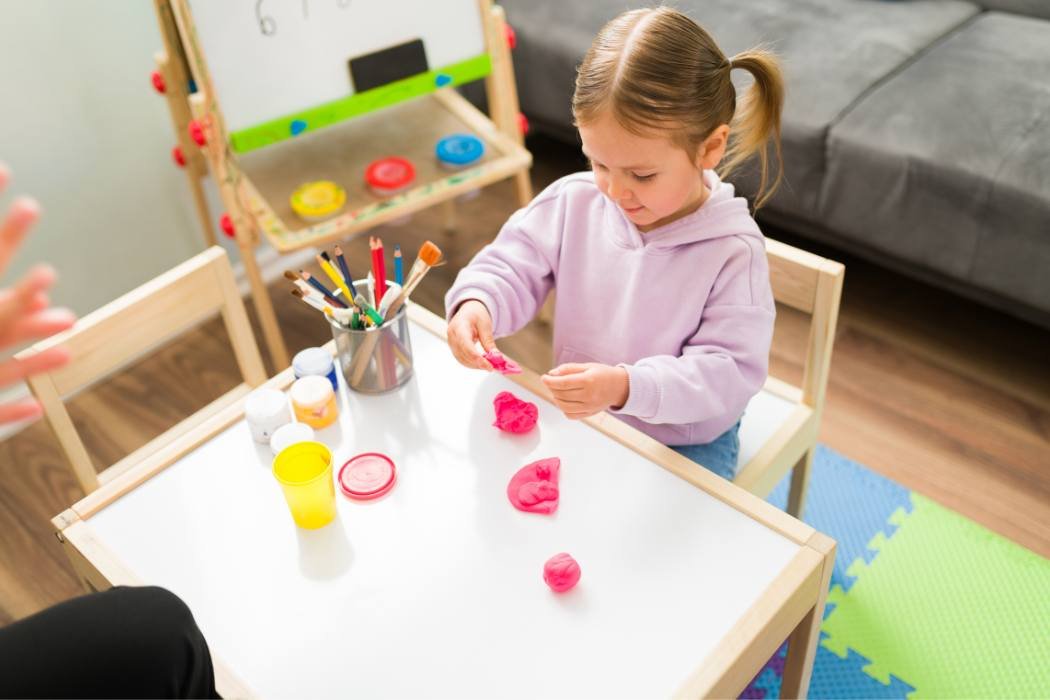The Power of Mindfulness and Play Therapy for Children with ADHD
Managing ADHD can be challenging, both for the child and their parents. However, a combination of mindfulness and play therapy has emerged as a promising approach to support children with ADHD in developing essential skills for self-regulation, focus, and emotional well-being.
In this blog, we will delve into the benefits of mindfulness and play therapy for children with ADHD.
The Power of Mindfulness for Children with ADHD
Mindfulness involves paying purposeful attention to the present moment without judgment. For children with ADHD, practicing mindfulness can offer several advantages:
Improved Focus and Attention: Mindfulness exercises encourage children to anchor their awareness to their breath, bodily sensations, or specific objects. This practice helps them develop greater control over their attention, enhancing their ability to concentrate on tasks and remain engaged in activities.
Emotion Regulation: Children with ADHD often struggle with managing intense emotions. Mindfulness teaches them to observe their feelings without immediate reaction, promoting emotional awareness and healthier coping mechanisms. This skill is vital for reducing impulsive behaviors.
Stress Reduction: Mindfulness techniques like deep breathing and guided imagery can alleviate stress and anxiety, common co-occurring issues in children with ADHD. These techniques empower children to handle challenges with a calmer mindset.
Enhanced Self-Awareness: Mindfulness encourages self-reflection and self-acceptance. Children can learn to recognize their strengths, weaknesses, and triggers, leading to improved self-esteem and a stronger sense of identity.
PLAY THERAPY AND ADHD
Play therapy is a therapeutic approach that utilizes play to help children express their thoughts, emotions, and experiences. For children with ADHD, play therapy offers numerous benefits:
Nonverbal Expression: Children with ADHD may struggle to articulate their feelings verbally. Play therapy provides a safe and creative outlet for them to communicate and process their emotions without the pressure of finding the right words.
Enhanced Social Skills: Play therapy often takes place in groups, allowing children to interact with peers in structured activities. This environment nurtures the development of social skills like sharing, turn-taking, and cooperation.
Problem-Solving Abilities: Play therapy scenarios offer opportunities to practice decision-making and problem-solving. Children can explore different approaches in a controlled setting, boosting their cognitive flexibility.
Regulation of Impulsivity: Play therapy sessions are guided by therapists who encourage children to follow specific rules and guidelines. This helps children learn to control their impulses and develop self-discipline.
Mindfulness and Play Therapy
The combination of mindfulness and play therapy creates a powerful synergy, addressing various aspects of ADHD management:
Attention and Self-Regulation: Mindfulness techniques enhance a child's capacity to focus, while play therapy assists in transferring these skills to real-life situations.
Emotion Management: Mindfulness cultivates emotional awareness, which can then be explored and processed in play therapy sessions, fostering healthy emotional expression.
Social Interaction: Play therapy provides an arena for practicing social skills, and mindfulness helps children remain present and engaged during these interactions.
Creativity and Imagination: Play therapy encourages creativity, which complements the imaginative aspects of mindfulness practices.
Mindfulness and play therapy offer a multifaceted approach to supporting children with ADHD in developing crucial life skills. By cultivating mindfulness and engaging in purposeful play, these children can improve their attention, emotional regulation, social skills, and overall well-being. This holistic approach has the potential to transform the lives of children with ADHD, empowering them to thrive academically, socially, and emotionally.
Janine Kelly, MSW, LCSW, RPT, CATP, ADHD-CCSP, CCATP-CA is a Registered Play Therapist, Certified EMDR Therapist, and Perinatal Mental Health Therapist in Middlesex, NJ. Janine specializes in childhood anxiety, childhood OCD, childhood trauma, and supporting children who experience neurodivergence such as ADHD and Autism. She also specializes in pregnancy and postpartum mood disorders such as anxiety, panic disorder, OCD, depression, and Post-traumatic Stress Disorder (PTSD).
*This blog is not a substitute for therapy. To schedule an appointment, please click below.




